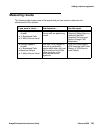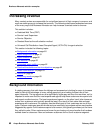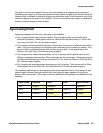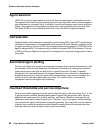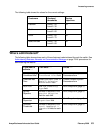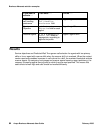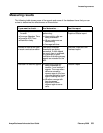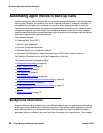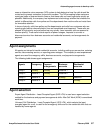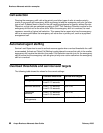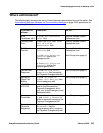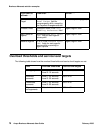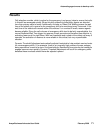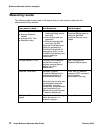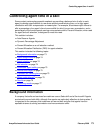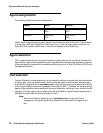
Automating agent moves to back up calls
Avaya Business Advocate User Guide February 2006
67
uses an interactive voice response (IVR) system to help determine how the calls should be
routed and to prompt customers for account numbers. The IVR prompting helps customers
report gas leaks or downed electric lines so that these calls can reach agents as quickly as
possible. Additionally, the company has implemented a technology solution that enables the
switch to differentiate calls from police and fire departments from routine calls and route them
for immediate attention.
In terms of priority, calls from police and fire departments and calls from customers who are
reporting gas leaks or downed electric lines are considered most important. These calls are
queued at high priority and are backed up very quickly. Less important calls are queued at
medium priority. These calls include reports of power outages, requests to connect or
disconnect service from business accounts and residential accounts, and arrangements for
payment.
Agent assignments
All agents are trained to handle residential accounts, including setting up new service, restoring
service, disconnecting service, or reporting power outages. The company’s most experienced
agents are used for emergency skills, business accounts, and payment arrangements.
The following table shows agent assignments.
Agent selection
Expert Agent Distribution - Least Occupied Agent (EAD-LOA) is used as an agent selection
method for the business and payment arrangements skills. After Call Work (ACW) is considered
work time.
Universal Call Distribution - Least Occupied Agent (UCD-LOA), which selects the least
occupied agent for a call, is used for the emergency skills and for the residential skills that are
handled by newer agents.
Agents Emergency Payment
arrangements
Business
accounts
Residential
accounts
Group 1
Primary Primary Reserve 1
Group 2 Reserve 1
Primary Reserve 2
Group 3 Reserve 2
Primary Reserve 1
Group 4 Reserve 2
Primary



